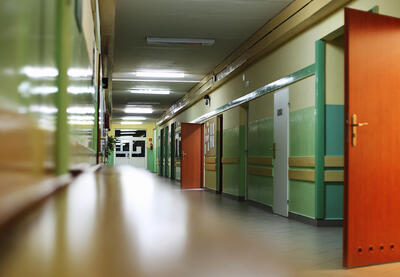School policies that include harsh punishments, automatic out-of-class time and police involvement for discipline contribute to pushing young people out of classrooms and into the criminal legal system. These punitive practices disproportionately affect Black and other children of color, students with disabilities, young people experiencing poverty and children from communities that have been historically marginalized.
Urgent change is needed to disrupt this school-to-prison pipeline. Together, educators and families can advocate for and implement practices that prioritize mental health and well-being and do not push children out of the classroom.
We offer these resources to open dialogue, shift practices and foster change to benefit all young people.
Learning for Justice Resources
Healing Through Restoration and Transformation
Highlighting a community Freedom School model in Mississippi that embraces transformative practices to strengthen relationships and disrupt the school-to-prison pipeline, this article illustrates the power of communities to effect change.
Toolkit: Peace-Building Circles
Transforming discipline practices requires commitment to processes that strengthen relationships among individuals and connections within communities. This toolkit, which accompanies the “Healing Through Restoration and Transformation” article, provides details for using peace-building circles.
Decarceration Begins With School Discipline Reform
By connecting harsh punitive practices in schools to the history of incarceration of Black Americans, this article contends that educators have a role in ending discipline that criminalizes youth. Reforms, including trauma-informed and restorative practices, can disrupt the school-to-prison pipeline.
It Was Always About Control
This article examines how compliance is at the root of discipline that harms young people and the urgent need to advocate for change.
Toolkit: The Foundations of Restorative Justice
School discipline and classroom management do not have to be based in compliance. Learn more about restorative practices in this article, a companion piece to “It Was Always About Control.”
Envisioning School Safety Without Police
This article examines how communities across the country are mobilizing to improve school safety without police presence while advocating for students’ dignity.
Parents Push for School Safety
This article highlights how a parent-led grassroots organization in Georgia chips away at punitive school discipline policies and works to remove police from their schools.
From Slavery to School Discipline
By examining the connection between school discipline and the history of slavery, this article explains how envisioning schools that affirm and protect Black students means reckoning with a long history of racist punishment.
Criminalizing Blackness: Prisons, Police and Jim Crow [Podcast Episode]
from Teaching Hard History podcast series, Season 4, Episode 13
After emancipation, aspects of the legal system were reshaped to maintain control of Black lives and labor. Historian Robert T. Chase outlines the evolution of convict leasing in the prison system. And Historian Brandon T. Jett explores the commercial factors behind the transition from extra-legal lynchings to police enforcement of the color line. We examine the connections between these early practices and the more familiar apparatuses of today’s justice system—from policing to penitentiaries.
The School-to-Prison Pipeline
Revisit this 2013 article that explains the basics of the school-to-prison pipeline and contends that policies and practices that favor incarceration over education do us all a grave injustice.
A Teachers Guide to Rerouting the Pipeline and Toolkit for Rerouting the Pipeline
This article and the accompanying toolkit illustrate how daily decisions can help divert students from the school-to-prison pipeline.
Trauma Responsive Education
This webinar will help educators gain a common understanding of trauma and how it affects both learning and relationships at school—for students and educators alike.
Responding to Trauma in Your Classroom
This article can help educators learn how to recognize the signs of trauma, better understand the causes of trauma, and take steps to establish social and emotional safety in the classroom.




